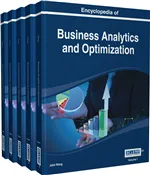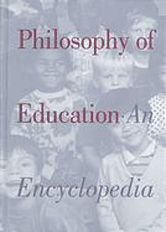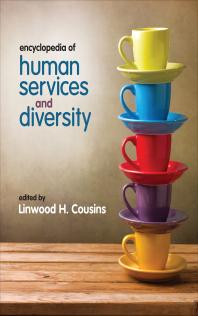When getting started with your research, it is a good idea to get a general overview of a topic or gather background information. This information can help you decide if the topic really is in line with your thinking, and whether you want to continue researching in that subject area. Background information may include facts, historical figures, timelines, definitions, origins, theories, events, and more.
Reference resources are the most authoritative sources for locating general or background information. Reference resources are generally considered to be encyclopedias, dictionaries, handbooks, and thesauri. You may visit the Find an E-Book page to locate reference resources in the Library. Recommended databases include the following:
Content: Ebook database from the American Psychological Association that includes the most current scholarly and professional titles published by APA, as well as historical and classic works from the behavioral and social sciences.
Purpose: A fundamental resource for any psychology student.
Content: A reference database useful for accessing scholarly definitions, background and contextual information. Subjects covered include art, biography, business, economics, education, history, literature, music, psychology, religion, and science and technology.
Purpose: An excellent starting point for brainstorming a research topic and building out your initial search terms list.
Special Features: Mindmap; related articles; image search
Content: Ebooks with coverage across all academic disciplines. The collection offers a critical mass of more than 150,000 foundational scholarly ebooks with balanced quantity and quality to improve teaching, learning and research workflow and outcomes.
Purpose: Provides access to multidisciplinary ebooks for download or to be read online.
Special Features: Browse by subject option; highlight and take notes in text.
Content: A collection of reference e-books published by Oxford University Press
Purpose: A collection of reference e-books
Content: Reference sources, primarily books but also videos and business cases.
Purpose: Use for finding reference sources like encyclopedias and handbooks that provide contextual or explanatory material.
Special Features: Includes Sage Navigator
It is important to keep in mind that these types of resources should be thought of as preliminary or tangential, and may not always be used as cited references in your scholarly work.
For additional information on finding background information, see the following Library FAQs:
 Encyclopedia of Business Analytics and Optimization
by
John Wang (Editor)
Encyclopedia of Business Analytics and Optimization
by
John Wang (Editor)
 An Encyclopedia of Macroeconomics
by
Brian Snowdon (Editor); Howard R. Vane (Editor)
An Encyclopedia of Macroeconomics
by
Brian Snowdon (Editor); Howard R. Vane (Editor)
 Encyclopedia of Sports Management and Marketing
by
Mark Dodds (Editor); Linda E. Swayne (Editor)
Encyclopedia of Sports Management and Marketing
by
Mark Dodds (Editor); Linda E. Swayne (Editor)
 Encyclopedia of the History of American Management
by
Morgen Witzel (Editor)
Encyclopedia of the History of American Management
by
Morgen Witzel (Editor)
 Gale Encyclopedia of U. S. Economic History
by
Thomas Riggs
Gale Encyclopedia of U. S. Economic History
by
Thomas Riggs
 The Princeton Encyclopedia of the World Economy
by
Kenneth A. Reinert (Editor); Ramkishen S. Rajan (Editor)
The Princeton Encyclopedia of the World Economy
by
Kenneth A. Reinert (Editor); Ramkishen S. Rajan (Editor)
 Encyclopedia of Diversity in Education
by
James A. Banks (Editor)
Encyclopedia of Diversity in Education
by
James A. Banks (Editor)
 Encyclopedia of Educational Theory and Philosophy
by
D. C. Phillips (Editor)
Encyclopedia of Educational Theory and Philosophy
by
D. C. Phillips (Editor)
 Philosophy of Education: An Encyclopedia
by
J. J. Chambliss (Editor)
Philosophy of Education: An Encyclopedia
by
J. J. Chambliss (Editor)
 The SAGE Encyclopedia of Contemporary Early Childhood Education
by
Donna Couchenour (Editor); J. Kent Chrisman (Editor)
The SAGE Encyclopedia of Contemporary Early Childhood Education
by
Donna Couchenour (Editor); J. Kent Chrisman (Editor)
 The Gale Encyclopedia of Nursing and Allied Health
by
Jacqueline L. Longe (Editor)
The Gale Encyclopedia of Nursing and Allied Health
by
Jacqueline L. Longe (Editor)
 The Gale Encyclopedia of Public Health
by
Laurie J. Fundukian (Editor)
The Gale Encyclopedia of Public Health
by
Laurie J. Fundukian (Editor)
 The SAGE Encyclopedia of Theory in Counseling and Psychotherapy
by
Edward S. Neukrug
The SAGE Encyclopedia of Theory in Counseling and Psychotherapy
by
Edward S. Neukrug
 The Wiley Blackwell Encyclopedia of Family Studies
by
Constance L. Shehan (Editor)
The Wiley Blackwell Encyclopedia of Family Studies
by
Constance L. Shehan (Editor)
 The Concise Corsini Encyclopedia of Psychology and Behavioral Science
by
W. Edward Craighead; Charles B. Nemeroff (Editor)
The Concise Corsini Encyclopedia of Psychology and Behavioral Science
by
W. Edward Craighead; Charles B. Nemeroff (Editor)
 Encyclopedia of Social Psychology
by
Roy F. Baumeister; Kathleen D. Vohs
Encyclopedia of Social Psychology
by
Roy F. Baumeister; Kathleen D. Vohs
 Encyclopedia of Sport and Exercise Psychology
by
Robert C. Eklund (Editor); Gershon Tenenbaum (Editor)
Encyclopedia of Sport and Exercise Psychology
by
Robert C. Eklund (Editor); Gershon Tenenbaum (Editor)
 Encyclopedia of Trauma: An Interdisciplinary Guide
by
Charles R. Figley (Editor)
Encyclopedia of Trauma: An Interdisciplinary Guide
by
Charles R. Figley (Editor)
 Encyclopedia of Human Services and Diversity
by
Linwood H. Cousins (Editor)
Encyclopedia of Human Services and Diversity
by
Linwood H. Cousins (Editor)
 Encyclopedia of 20th-Century Technology
by
Colin Hempstead; William E. Worthington
Encyclopedia of 20th-Century Technology
by
Colin Hempstead; William E. Worthington
 Encyclopedia of Computer Science and Technology
by
Harry Henderson
Encyclopedia of Computer Science and Technology
by
Harry Henderson
 Collins Dictionary of Business
by
Christopher Pass (Editor)
Collins Dictionary of Business
by
Christopher Pass (Editor)
 Collins Dictionary of Economics
by
C. L. Pass (Editor); Leslie Davies (Editor); Bryan Lowes (Editor)
Collins Dictionary of Economics
by
C. L. Pass (Editor); Leslie Davies (Editor); Bryan Lowes (Editor)
 Dictionary of Accounting
by
S. M.H. Collin
Dictionary of Accounting
by
S. M.H. Collin
 Dictionary of Financial Engineering
by
John F. Marshall
Dictionary of Financial Engineering
by
John F. Marshall
 Dictionary of Human Resources and Personnel Management
by
A. Ivanovic (Editor); P.H. Collin (Editor)
Dictionary of Human Resources and Personnel Management
by
A. Ivanovic (Editor); P.H. Collin (Editor)
 New Penguin Business Dictionary
by
Graham Bannock (Editor)
New Penguin Business Dictionary
by
Graham Bannock (Editor)
 Penguin Dictionary of Economics
by
Graham Bannock; R. E. Baxter; Evan Davis
Penguin Dictionary of Economics
by
Graham Bannock; R. E. Baxter; Evan Davis
 Routledge Dictionary of Economics
by
Donald Rutherford
Routledge Dictionary of Economics
by
Donald Rutherford
 Webster's New World Finance and Investment Dictionary
by
Barbara Etzel
Webster's New World Finance and Investment Dictionary
by
Barbara Etzel
 Biographical Dictionary of Modern American Educators
by
ABC-CLIO
Biographical Dictionary of Modern American Educators
by
ABC-CLIO
 Dictionary of Multicultural Education
by
Carl A. Grant; Gloria Ladson-Billings; Kerry L. Haynie; and Anne M. McCulloch
Dictionary of Multicultural Education
by
Carl A. Grant; Gloria Ladson-Billings; Kerry L. Haynie; and Anne M. McCulloch
 Collins Dictionary of Medicine
Collins Dictionary of Medicine
 Dictionary of Health Economics and Finance
by
David Edward Marcinko (Editor); Msha Cphq Cmp (Editor)
Dictionary of Health Economics and Finance
by
David Edward Marcinko (Editor); Msha Cphq Cmp (Editor)
 Mosby's Medical, Nursing, & Allied Health Dictionary
by
Walter Glanze
Mosby's Medical, Nursing, & Allied Health Dictionary
by
Walter Glanze
 Webster's New World Medical Dictionary
by
WebMD (Firm) Staff
Webster's New World Medical Dictionary
by
WebMD (Firm) Staff
 Biographical Dictionary of Psychology
by
Noel Sheehy (Editor); Antony J. Chapman (Editor); Wenday A. Conroy (Editor)
Biographical Dictionary of Psychology
by
Noel Sheehy (Editor); Antony J. Chapman (Editor); Wenday A. Conroy (Editor)
 Dictionary of Forensic Psychology
by
David P. Farrington (Editor); Gareth Hughes (Editor); Graham Towl (Editor); David Crighton (Editor)
Dictionary of Forensic Psychology
by
David P. Farrington (Editor); Gareth Hughes (Editor); Graham Towl (Editor); David Crighton (Editor)
 Dictionary of Multicultural Psychology: Issues, Terms, and Concepts
by
Lena E. Hall
Dictionary of Multicultural Psychology: Issues, Terms, and Concepts
by
Lena E. Hall
 Elsevier's Dictionary of Psychological Theories
by
Jon E. Roeckelein (Editor)
Elsevier's Dictionary of Psychological Theories
by
Jon E. Roeckelein (Editor)
 Encyclopaedic Dictionary of Psychology
by
Graham Davey
Encyclopaedic Dictionary of Psychology
by
Graham Davey
 The Penguin Dictionary of Psychology
by
Arthur S. Reber; Rhiannon Allen; Emily Sarah Reber
The Penguin Dictionary of Psychology
by
Arthur S. Reber; Rhiannon Allen; Emily Sarah Reber
 Dictionary of Communications Technology
by
Gilbert Held
Dictionary of Communications Technology
by
Gilbert Held
 Dictionary of Computing
by
S. M. H. Collin
Dictionary of Computing
by
S. M. H. Collin
 Dictionary of Multimedia and Internet Applications
by
Francis Botto
Dictionary of Multimedia and Internet Applications
by
Francis Botto
 Webster's New World Computer Dictionary
by
Bryan Pfaffenberger
Webster's New World Computer Dictionary
by
Bryan Pfaffenberger
© Copyright 2025 National University. All Rights Reserved.